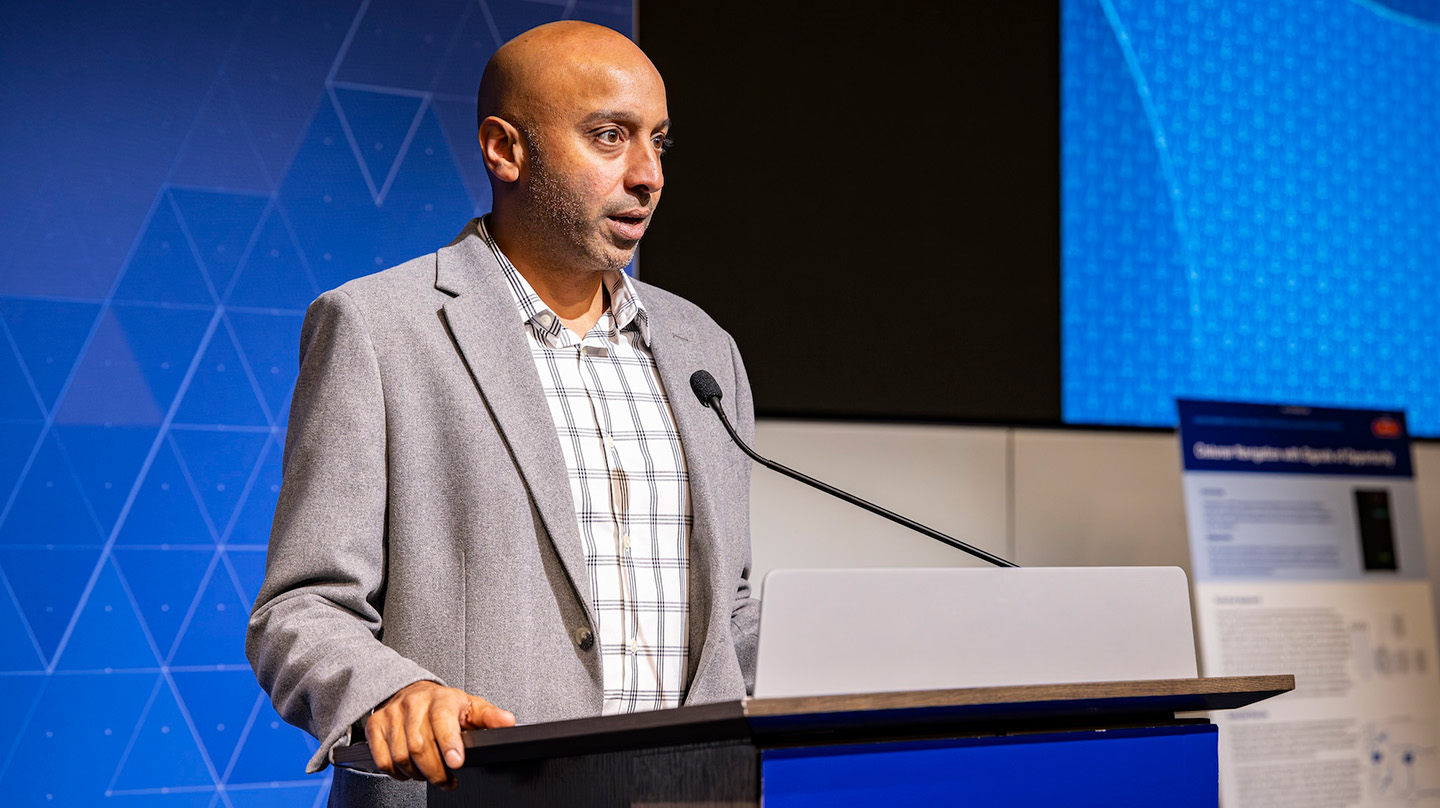Press Release
Johns Hopkins APL's Kalirai Named American Astronomical Society Fellow
Jason Kalirai, an astrophysicist and space mission area executive with the Johns Hopkins Applied Physics Laboratory (APL) in Laurel, Maryland, has been selected as a fellow by the American Astronomical Society.
Kalirai has served as APL’s mission area executive for Space Formulation since 2023, leading a team focused on developing bold and disruptive space science and technology efforts. He joined APL in 2018 as executive for the Lab’s Civil Space Mission Area, guiding the development of multiple NASA missions, research programs and technology demonstrations, including the Double Asteroid Redirection Test (DART), Europa Clipper, Interstellar Mapping and Acceleration Probe (IMAP), and Dragonfly, which will launch in 2028.
“I am deeply honored to receive this recognition for the critical space missions and research happening at APL,” said Kalirai.
Prior to joining APL, Kalirai spent 10 years at NASA’s Space Telescope Science Institute, leading research programs and strategic science initiatives for the Hubble Space Telescope, James Webb Space Telescope and Nancy Grace Roman Telescope.
In naming Kalirai to its 2025 class of fellows, the society credited him “for taking a holistic approach to astronomical sciences by leveraging ground- and space-based telescopes to place novel constraints on astrophysical mass functions; for expertly leading and enabling new space missions including DART and Dragonfly; and for bold advocacy for astronomy and inspiring the next generation.”
“I am thrilled to see Jason receive this recognition,” said Bobby Braun, head of APL’s Space Exploration Sector. “His insight and experience across astrophysics, heliophysics and planetary science continue to serve our nation’s space science community well.”
Last fall, Kalirai was honored by the Society of Asian Scientists and Engineers with its Executive of the Year award for his leadership in space science and engineering.
Created in 2019, the AAS Fellows program recognizes members for contributions toward the society’s mission of “enhancing and sharing humanity’s scientific understanding of the universe.”
Established in 1899, AAS includes approximately 8,000 members, including astronomers, educators, physicists, geologists, engineers and other researchers focused on astronomical sciences. This year’s fellows will be acknowledged during the 2025 AAS meeting held Jan. 12-16 at National Harbor, Maryland.
